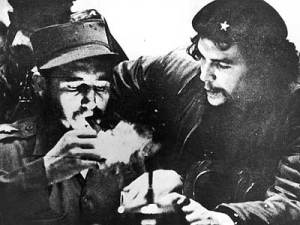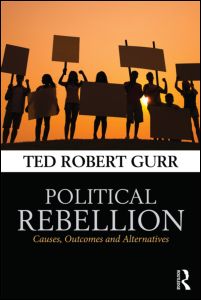Transcript
For half a century Professor Ted Robert Gurr has conducted social science research and theorised about the causes and consequences of organised political rebellion and protest.
 His latest book, Political Rebellion Causes Outcomes and Alternatives is a collection of essays looking at how and why, and to what effect, millions of people – from the Castro-inspired revolutionary movements of Latin America in the 1960s to Yugoslavia’s dissolution in ethno-national wars of the 1990s, and the popular revolts of the Arab Spring – have risked their lives by participating in protests and rebellions.
His latest book, Political Rebellion Causes Outcomes and Alternatives is a collection of essays looking at how and why, and to what effect, millions of people – from the Castro-inspired revolutionary movements of Latin America in the 1960s to Yugoslavia’s dissolution in ethno-national wars of the 1990s, and the popular revolts of the Arab Spring – have risked their lives by participating in protests and rebellions.In this interview with Professor Gurr, Pod Academy’s Craig Barfoot explores
- In which political systems are rebellions likely to be successful and in which are they likely to be unsuccessful
- How effective are protest movements as alternatives to rebellions and terrorism?
- What public and international responses lead away from violence and toward reforms?
Political Rebellion: Causes Outcomes and Alternatives is published by Routledge
Tags: Political change, Political systems, Protest movements, Rebellion, Terrorism


Subscribe with…